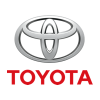Review & Compare:
2000 Toyota Echo Trims
The 2000 Toyota Echo has 4 trims. Below you will be able to review all the trims with the option to compare.
4 trims available









No content available


This vehicle has not yet been reviewed
No content available